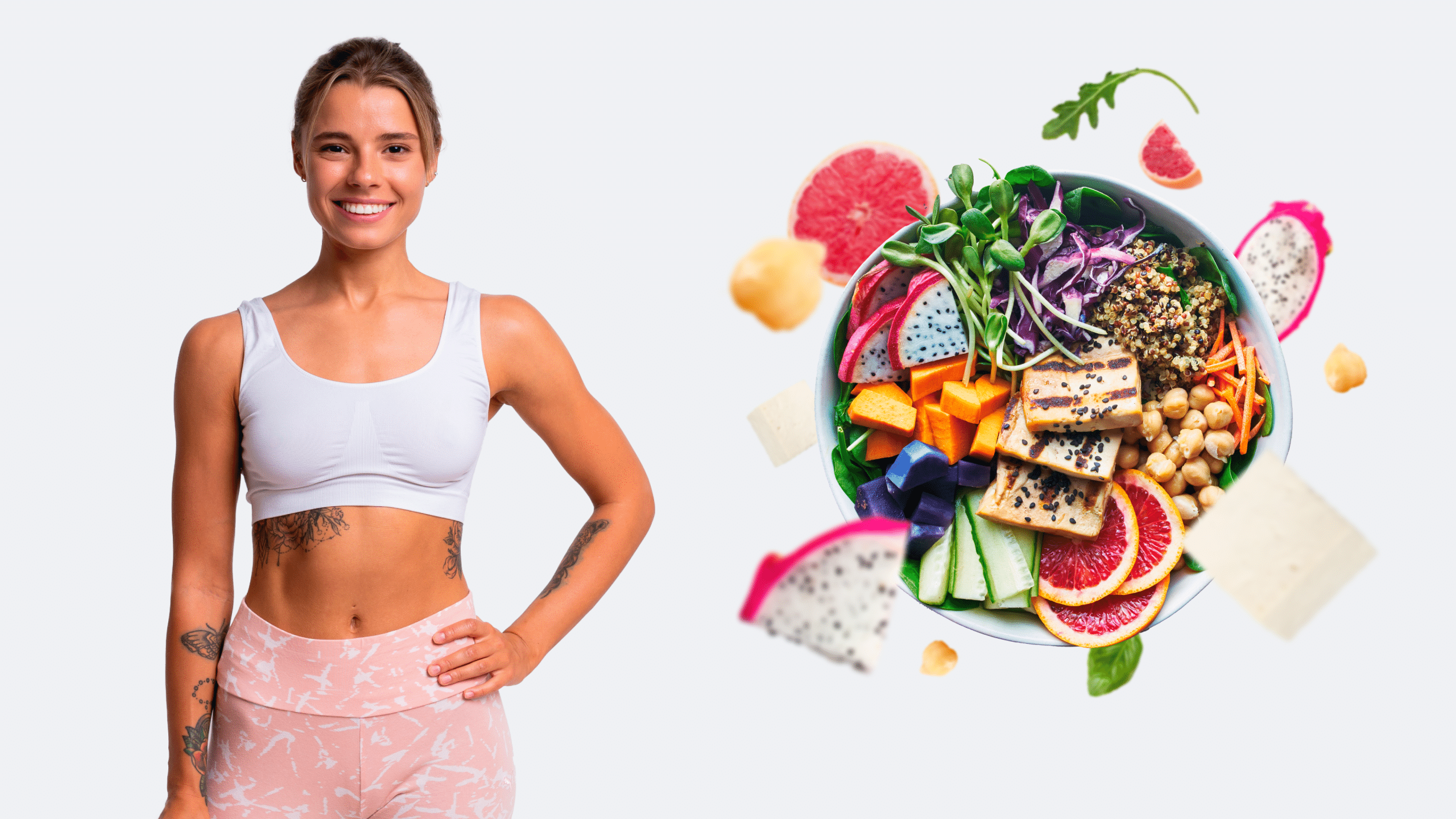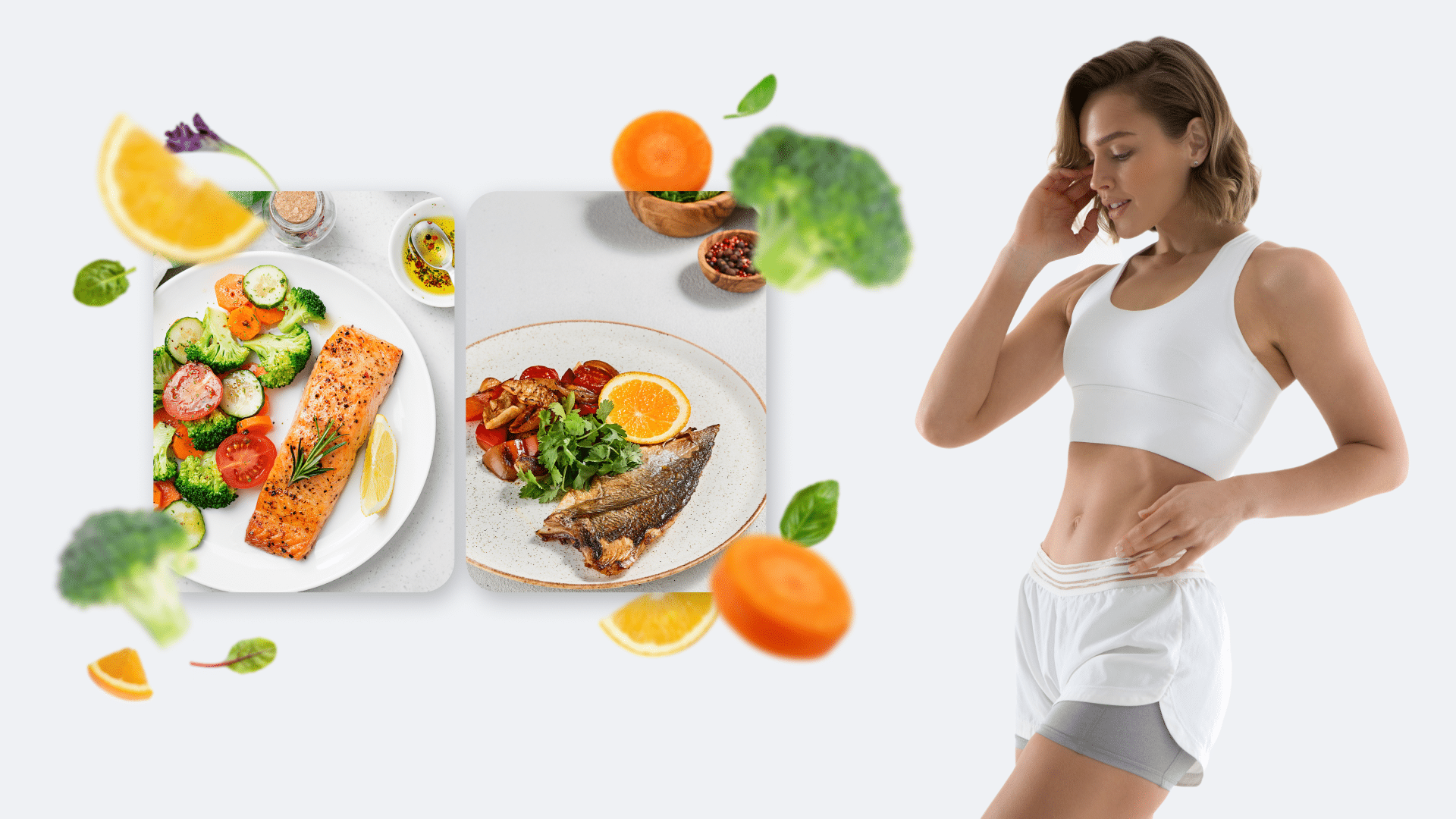You’ve seen dozens of detoxes and cleanses, all claiming to help you flush toxins out of your body. Some last 7 days, others last 21 – some even go up to a month. Most of these diets also promise weight loss, which is probably the one benefit you are tempted to go on the diet for.
However, before you punish yourself with a liquid diet, know that your body detoxes itself regardless of what you eat. That said, you can still detox your body by moving from unhealthy eating to healthy eating. Furthermore, you can lose weight by including portion control and exercise as part of your 21-day detox plan.
Like most diets that restrict calorie intake, the detox diet can help you lose weight. But to enjoy your results long-term, you need to have a sustainable plan. Here is everything you need to know to embark on a successful 21-day detox.
What is a 21-Day Detox?
A 21-day detox is a dietary plan that involves eliminating certain foods and focusing on nutrient-dense, whole foods for a period of 21 days. This time frame is based on the idea that it takes roughly three weeks to form new habits and break old ones.
By following this plan, you can reset your eating habits and give your body a break from the unhealthy foods that may be causing inflammation, bloating, and other negative effects.
Unfortunately, some versions of the 21-day detox promise quick weight loss through extreme calorie restriction or only consuming liquids. These fad diets can be dangerous and are not recommended by health professionals. Instead, focus on a balanced, whole-food diet with proper portion control for sustainable results.
Betterme will keep you laser-focused on your weight loss journey! Nutrient-packed meal plans, fat-blasting workouts, galvanizing challenges and much more. Try using the app and see for yourself!
Do Detox Diets Really Work?
Yes and no. Our bodies are equipped with natural detoxification systems, primarily the liver and kidneys. These organs filter out toxins from our blood and eliminate them through urine or stool. However, if we constantly bombard our bodies with unhealthy foods, alcohol, and other toxins, it can put a strain on these systems (13).
Detox diets support our body’s natural detoxification systems by eliminating processed foods, added sugars, and alcohol. By doing so, we reduce the burden on our liver and kidneys and allow them to function optimally.
Additionally, incorporating nutrient-dense whole foods into our diet provides essential vitamins, minerals, and antioxidants that support overall health.
Detox diets don’t work in the sense that they can magically rid our bodies of toxins. They work by providing the body with proper nutrition to fuel its natural detox processes and reduce the intake of harmful substances.
What Is The Best Detox Cleanse for Weight Loss?
Your body is naturally equipped to detoxify itself every day. Your liver and kidneys are responsible for breaking down waste in your body naturally – but they can only do so much (5). The best thing you can do is allow them to function at their best by removing the workload of trying to meet your nutritional needs.
The 21-day detox diet cuts out certain foods that are high in preservatives and chemicals while adding healthy foods that boost liver cleansing abilities and speed up metabolism rate.
Benefits of the 21-Day Detox Diet
The detox diet does not mean you are left with nothing to eat. Instead, it encourages a clean eating plan and has several benefits that aid weight loss.
1. Boosts Energy Levels
Your energy level can suffer during your detox program since you can only munch on raw fruits, vegetables, green tea, or lemon water for the first few days of the diet. However, after two weeks when you add whole grains to your meal plan as well, you will find yourself experiencing better overall energy levels by increasing your intake of vitamins and minerals.
2. Speeds Up Metabolism Rate
Detox diets often contain large amounts of fiber-rich foods such as fresh fruits and veggies which help speed up the metabolism rate. As your body breaks down these foods, the digestive enzymes help to burn excess calories that are stored in your body (4).
3. Reset Your Body’s Natural Processes
During a detox diet, you don’t have to starve yourself or spend hours at the gym just to lose weight. Instead of doing the work for your body, a detox diet helps your body do what it is already programmed to do — maintain balance and remove toxins from within itself.
Read more: Armpit Detox: Why People Do it, Whether it Works & How to Do It
How To Detox Your Body For Weight Loss
A 21-day program can quickly go wrong if you don’t do it right. Remember, the goal is to improve your energy levels and lose weight. This can be achieved in three stages namely preparation stage (pre-detox), detox (the 21-day diet), and maintenance stage (post-detox).
Let’s look at each of these stages below:
Preparation Stage (Pre-Detox)
Planning is the key to any effective changes in your life. When you plan, you have a clear vision of what you want and how you will achieve it.
To detox your body for weight loss, start by planning for it. Even if you decide to follow a three-week pre-detox program, don’t be afraid to set aside at least 3 weeks to prepare yourself mentally, physically, and financially for the detox.
The Shopping List
First, figure out your shopping situation. For the 21-day period, you’ll change your menu completely. This change must be sustainable – there’s no need to go for meals that you can’t afford long term.
It’s up to you to find a balance between affordability, and taste. Although you’re trying to stick to a budget, punishing yourself with a diet you don’t enjoy eating will make it harder to be consistent and see results.
With this in mind, write a shopping list. We discuss foods you can, and can’t eat later on in this article.
The Elimination Diet
Don’t wait until the diet period to cut off all foods – you’ve got to do it gradually.
During the preparation stage, gradually eliminate foods that you know are bad for your health. This goes beyond the obvious like red meat and fatty foods – these include various condiments, fish, soda, etc.
Be sure to avoid anything that is chemically processed and has a ton of preservatives in it – not just because they are unhealthy but also because detox diets tend to make you sensitive to them (10).
The elimination diet is important because it’s gradual, and allows your taste buds to grow accustomed to new foods without triggering cravings for old ones.
Research has proven extreme restriction never works well for weight loss, or any other benefit (2). So start slow, and get your body ready for what’s to come.

Giving Friends and Family a Heads Up
It’s a fact – having a supportive environment can influence your chances of success with any diet, including the 21-day detox. Let people know what you’re planning, and ask them to be supportive. This can include not bringing junk to the house, or making meals that fit in your plan.
Detox Stage – 21 Days of Clean Eating
It is known that we build up toxins as time goes on, especially when we abuse processed foods and make unhealthy eating habits part of our lifestyle (11).
In order to maintain a healthy lifestyle, it would be best if you can take steps to prevent this build-up or eliminate these unnecessary wastes from your system in the first place so that you will not only feel good but live longer too.
Unlike other diets that force you to eliminate certain types of nutrients, lose weight rapidly or spend hours working out in the gym, this diet simply requires a combination of natural foods and exercise to achieve great results.
There are no special supplements to take and neither is there any need for you to go hungry all the time because you can eat to satiety with this diet. You just have to follow simple rules and guidelines when it comes to selecting your foods.
The first step of this detox diet involves removing toxic foods from your daily meals. These include:
- processed food items
- artificial additives/colorings
- coffee
- alcoholic drinks
- caffeine and sugar-based soft drinks
Putting together what you have learned, here is the second step:
Choose organic foods whenever possible; these are free of pesticides (8). You can easily identify them just by looking at their labels or packaging.
Organic foods have no added chemicals and preservatives too. They may also cost more than non-organic food items but when it comes to your health, there’s no better value for money.
Eating organically not only preserves food nutrients but also helps you avoid exposure to harmful toxins that most processed foods contain because they contain steroids to enhance growth and keep them fresh despite being stored for a long time (1).
Some healthy, unprocessed foods that should feature in your detox diet include:
- Leafy greens e.g. spinach and kale
- Cruciferous greens e.g. broccoli and cauliflower
- Berries e.g. raspberries, blackberries, blueberries, and strawberries
- Lean meat e.g. chicken and turkey breast
- Fish e.g. rainbow trout, catfish and salmon (freshly caught)
- Vegetarian proteins e.g. tofu, tempeh, and seitan (made from wheat gluten)
- Nuts e.g. almonds, walnuts, and cashews
- Foods rich in fiber e.g. celery and beets
- Healthy fats e.g. avocado, olive oil, and coconut oil
- Tons of water (about 8 glasses or 2 liters daily) to flush toxins out (12).
The 21-Day Detox Diet Plan Menu
You want a diet plan that’s easy to follow and stick to every day for three weeks. Here is what a day of clean eating looks like:
- Breakfast – a high-protein shake made with whole grains like oats, plant-based milk, and berries. You can add protein powder for a macro boost.
- Lunch – a veggie-packed salad bowl, with a whole grain like quinoa. Nut toppings add some crunch and healthy fats to keep you full and energized all day.
- Snack – Snacking is important because it keeps hunger at bay and prevents you from overeating during mealtime. A handful of roasted nuts, or a cup of plain yogurt topped with fruits can do.
- Dinner – If you’re not vegan, this is the time to have steamed salmon on a bed of leafy greens like spinach. You can skip the carbs (especially from starchy vegetables) and focus on filling up protein and fat. A vegan alternative would be tofu or a black bean chili.
BetterMe app will kick you out of the mental funk, shake off your extra weight, rid you off your energy-zapping habits, and help you sculpt the body of your dreams. Intrigued? Hurry up and change your life for the better!
Maintenance Stage (Post-Detox)
After the 21 days, you should be noticing changes in your mood, energy levels, and possible weight. Now it’s time to maintain those changes by doing the following:
Exercise
Studies have proven that dieting alone isn’t as effective as dieting along with exercise (3). It can be as simple as walking daily, or as nuanced as hitting the gym for a HIIT workout. Either way, get moving.
Portion Control
This takes time and practice but is important if you want to maintain a calorie deficit and lose more weight (14). It doesn’t have to be complicated with weighing scales and counting macros – try using hand portions to guide you.
Mindful Eating
It’s okay to eat for enjoyment and pleasure, but it shouldn’t be a guilty affair. Set rules regarding the foods you can have (e.g. no sweet treats after dinner), and stick to them every day.
Eating mindfully will help you control your cravings and identify which foods trigger binging or overeating (9).
Read more: Fasting Detox: Foods and Drinks to Detoxify Your Body Safely
FAQs
What Should I Eat On the 21-Day Cleanse?
On the 21-day cleanse, you should eat whole, unprocessed foods such as fruits, vegetables, lean proteins, healthy fats, and whole grains. With this type of diet, you’ll be consuming a variety of vitamins, minerals, and dietary fiber to support your body’s detoxification processes.
Here are some examples of foods to include in your 21-day detox diet recipes:
- Fruits: Berries, apples, oranges, bananas, grapefruits
- Vegetables: Leafy greens, broccoli, carrots, bell peppers, sweet potatoes
- Lean proteins: Chicken breast, salmon, tofu, lentils
- Healthy fats: Avocadoes, nuts and seeds, olive oil
- Whole grains: Quinoa, brown rice
These foods are nutrient-dense and provide the body with essential vitamins and minerals, as well as antioxidants to fight inflammation and support overall health (6).
What Foods Should I Avoid On the 21-Day Cleanse?
On the 21-day cleanse, you should avoid processed foods, added sugars, alcohol, and high-fat meats (7). These foods can put a strain on your body’s detoxification systems and increase inflammation in the body.
Here are some examples of foods to avoid on the 21-day cleanse:
- Processed foods: Chips, cookies, candy, frozen meals
- Added sugars: Soda, energy drinks, sweetened coffee or tea
- Alcohol: Beer, wine, cocktails
- High-fat meats: Bacon, sausage, deli meats
It’s also important to limit your intake of caffeine and focus on drinking plenty of water throughout the day to stay hydrated.
In our blog about the 28-Day Sugar Detox, we go into detail about how added sugars and processed foods can negatively impact our health.
By eliminating these foods from your diet for 21 days, you’ll be giving your body a break from these potentially harmful substances and allowing it to function optimally.
How Much Weight Can You Lose on a 21-Day Detox?
You can lose anywhere from 5-10 pounds on a 21-day detox, depending on your current weight and overall health. However, weight loss should not be the sole focus of a detox diet.
The main goal is to reset your eating habits and give your body a break from unhealthy foods. By doing so, you may experience other benefits such as improved digestion, increased energy, and clearer skin.
Using the 21-day detox diet for weight loss will be more effective if you also incorporate portion control and exercise into your routine. This will not only help you shed excess weight but also promote long-term healthy habits.
Our Fasting Detox guide has more information on incorporating exercise and portion control into a detox plan for sustainable results.
Can You Lose Fat In 21 Days?
Yes, it is possible to lose fat in 21 days with a combination of proper nutrition and exercise. However, the amount of fat loss may vary depending on individual factors such as body composition and metabolism.
The key to losing fat in a healthy and sustainable way is not through extreme calorie restriction or fad diets, but rather by creating a calorie deficit through portion control and regular physical activity.
This approach, combined with a 21-day detox plan focused on whole, nutrient-dense foods, can help you achieve your fat loss goals and maintain them in the long run.
How Can I Detox My Body In 3 Weeks?
You can detox your body in 3 weeks by following a balanced, whole-food diet for 21 days. This includes consuming plenty of fruits and vegetables, lean proteins, healthy fats, and whole grains while avoiding processed foods, added sugars, alcohol, and high-fat meats (l).
Additionally, incorporating regular physical activity and staying hydrated by drinking plenty of water can also support your body’s natural detoxification processes.
The Bottom Line
The 21-day detox diet works if you set out with a plan to create and maintain healthy eating for a long time. The key is to start gradually and stay consistent. Exercise and healthy habits must also be part of your plan.
DISCLAIMER:
This article is intended for general informational purposes only and does not address individual circumstances. It is not a substitute for professional advice or help and should not be relied on to make decisions of any kind. Any action you take upon the information presented in this article is strictly at your own risk and responsibility!
SOURCES
- A Systematic Review of Organic Versus Conventional Food Consumption: Is There a Measurable Benefit on Human Health? (2020, ncbi.nlm.nih.gov)
- Calorie Restriction and Fasting Diets: What Do We Know? (2018, nia.nih.gov)
- Effect of diet and exercise, alone or combined, on weight and body composition in overweight-to-obese post-menopausal women (2011, ncbi.nlm.nih.gov)
- Effects of Dietary Fiber and Its Components on Metabolic Health (2010, ncbi.nlm.nih.gov)
- Excretion – an overview (n.d., sciencedirect.com)
- Free radicals, antioxidants and functional foods: Impact on human health (2010, ncbi.nlm.nih.gov)
- How To Detox Your Body (2023, health.com)
- Human health implications of organic food and organic agriculture: a comprehensive review (2017, ncbi.nlm.nih.gov) f
- Mindful Eating: The Art of Presence While You Eat (2017, ncbi.nlm.nih.gov)
- Nutrition and health. The issue is not food, nor nutrients, so much as processing | Public Health Nutrition | Cambridge Core (2009, cambridge.org)
- The Hidden Dangers of Fast and Processed Food (2018, ncbi.nlm.nih.gov)
- Water, Hydration and Health (2010, ncbi.nlm.nih.gov)
- We Tried the Top 4 Detox Diets. Here’s if They Actually Work (2023, menshealth.com)
- “Calories in, calories out” and macronutrient intake: the hope, hype, and science of calories | American Journal of Physiology-Endocrinology and Metabolism (2017, journals.physiology.org)













